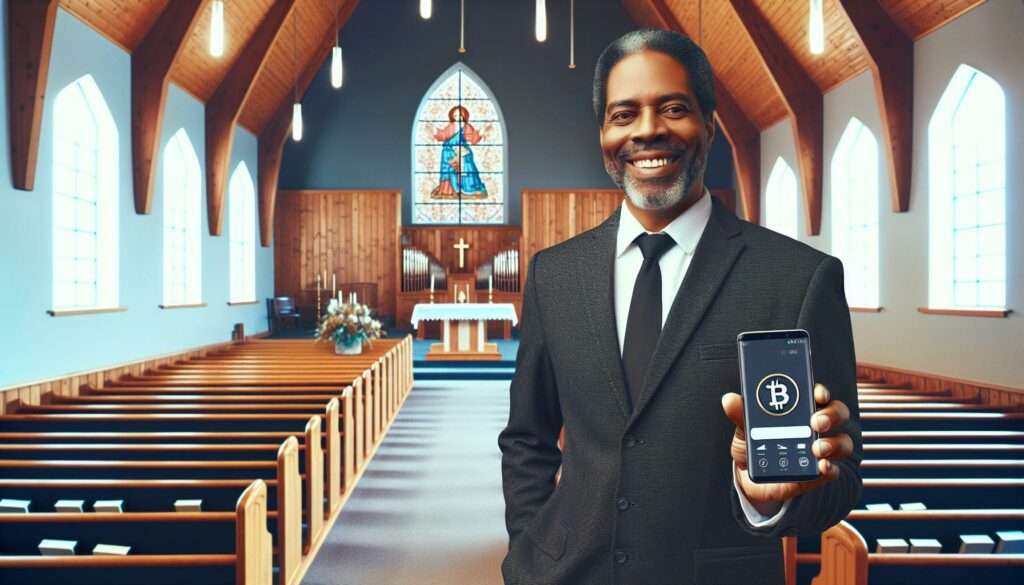In a rapidly evolving digital landscape, the intersection of faith and finance is becoming increasingly intriguing. Pastor cryptocurrency is at the forefront of this movement, offering a unique blend of spiritual guidance and modern financial innovation. I’ve been fascinated by how churches and faith leaders are embracing blockchain technology to foster community engagement and transparency. As I explore this topic, I’ll delve into how pastors are leveraging cryptocurrency to fund their ministries and connect with younger congregants. The potential for cryptocurrencies to reshape traditional giving practices can’t be overlooked. Join me as we uncover the transformative power of pastor cryptocurrency and its implications for the future of faith-based financial practices.
- Integration of Technology and Faith: Pastor cryptocurrency merges spiritual values with modern financial technology, allowing churches to enhance their financial practices through blockchain.
- Decentralization and Security: The decentralized nature of pastor cryptocurrency promotes autonomy for churches while using secure blockchain technology to protect congregants’ financial data.
- Transparency in Transactions: All transactions are recorded on a public ledger, fostering accountability and building trust between pastors and their communities.
- Cost Efficiency and Speed: Pastor cryptocurrency offers low transaction fees and rapid processing times, enabling churches to allocate more funds toward ministry initiatives and enhance the giving experience.
- Awareness of Market Volatility: Churches must be cautious of the inherent risks of fluctuating cryptocurrency values, implementing strategies to manage these risks effectively.
- Regulatory Compliance: Staying informed about cryptocurrency regulations is essential for churches to ensure legal compliance and avoid potential penalties.
Pastor Cryptocurrency
Pastor cryptocurrency represents a unique blend of spirituality and technology. This digital currency system enables churches to receive donations, conduct transactions, and manage finances more transparently. Pastors can leverage blockchain technology to create a secure environment for contributions, attracting tech-savvy congregants interested in alternative giving methods.
Numerous churches across the globe have begun integrating cryptocurrencies into their financial frameworks. For example, some ministries accept Bitcoin and Ethereum as forms of donation, providing flexibility and accessibility to their parishioners. This approach diversifies funding sources and aligns with the values of younger audiences who prefer digital transactions.
The use of pastor cryptocurrency enables faith leaders to foster community engagement. By implementing decentralized finance (DeFi) solutions, ministries can offer new financial services to their members, such as microloans for local projects. These initiatives strengthen community ties and promote a culture of sharing and support among congregants.
Moreover, pastors can utilize blockchain’s inherent features to enhance accountability. Every transaction records securely and immutably on the blockchain, allowing churches to demonstrate transparency in their financial dealings. This level of openness cultivates trust and confidence within the community, encouraging more individuals to engage in giving.
As more faith leaders adopt this innovative financial tool, pastor cryptocurrency could reshape the landscape of charitable giving and empower congregations to thrive in the digital age.
Key Features of Pastor Cryptocurrency
Pastor cryptocurrency combines spiritual values with technological innovation, offering unique benefits for churches. This digital currency enhances financial practices in various faith communities.
Decentralization and Security
Decentralization ensures that no single entity controls pastor cryptocurrency, promoting autonomy for churches. This structure enhances security, as the blockchain technology used in cryptocurrencies prevents unauthorized access and fraud. Cryptographic techniques secure transactions, safeguarding the financial data of congregants and ministries alike. I find this decentralized approach appealing because it fosters trust and independence from traditional banking systems.
Transparency in Transactions
Transparency in transactions characterizes pastor cryptocurrency, with every exchange recorded on a public ledger. This openness allows congregation members to verify donations and financial activities, reinforcing accountability. I appreciate how clear records build trust between pastors and their communities. This feature not only promotes ethical financial practices but also encourages faithful stewardship within ministries, enhancing community engagement.
Benefits of Using Pastor Cryptocurrency
Pastor cryptocurrency offers various advantages for churches and their congregants, making financial transactions more efficient and effective.
Low Transaction Fees
Low transaction fees characterize pastor cryptocurrency, significantly reducing the costs associated with traditional payment methods. Churches benefit from minimal service charges, allowing more funds to be directed towards ministry initiatives. For instance, Bitcoin offers transaction fees as low as 1% compared to credit card fees that can exceed 3%. This cost efficiency makes cryptocurrencies an attractive option for churches aiming to maximize their donation impact.
Fast Transactions
Fast transactions define the operational efficiency of pastor cryptocurrency. Unlike traditional banking, which may take several days to process deposits, cryptocurrency transfers occur within minutes. This speed ensures that donations are quickly accessible, enabling churches to allocate funds for immediate needs. Quick transactions enhance the overall giving experience and encourage timely support for various ministry activities.
Challenges and Risks
Adopting pastor cryptocurrency comes with several challenges and risks that faith leaders must consider. Understanding market volatility and regulatory concerns is essential for informed decision-making.
Market Volatility
Market volatility poses a significant risk for churches using pastor cryptocurrency. Value fluctuations impact donation amounts, making budgeting unpredictable. For example, Bitcoin’s price saw swings of over 50% in a single year, affecting overall contributions. Strategies to mitigate risks include converting donations to fiat currency promptly or using stablecoins, which maintain a consistent value. Maintaining an awareness of market trends can help churches navigate these challenges effectively.
Regulatory Concerns
Regulatory concerns present another hurdle in the integration of pastor cryptocurrency. Governments are still developing regulations around cryptocurrency transactions and taxation. Compliance with local laws requires careful attention. For instance, failure to report cryptocurrency donations can lead to penalties. Churches must ensure transparency in their transactions to avoid legal complications. Engaging with financial advisors experienced in cryptocurrency regulations can provide clarity and guidance in this evolving landscape.
Embracing pastor cryptocurrency is more than just a financial trend; it’s a transformative movement that aligns faith with modern technology. By adopting these digital currencies, churches can enhance transparency and foster deeper community engagement.
I see the potential for cryptocurrencies to not only diversify funding sources but also attract younger generations who value digital solutions. While challenges like market volatility and regulatory issues exist, the benefits far outweigh the risks.
As faith leaders navigate this new landscape, they have the opportunity to reshape charitable giving and empower their ministries in unprecedented ways. I’m excited to witness how pastor cryptocurrency will continue to evolve and impact the future of faith-based financial practices.

